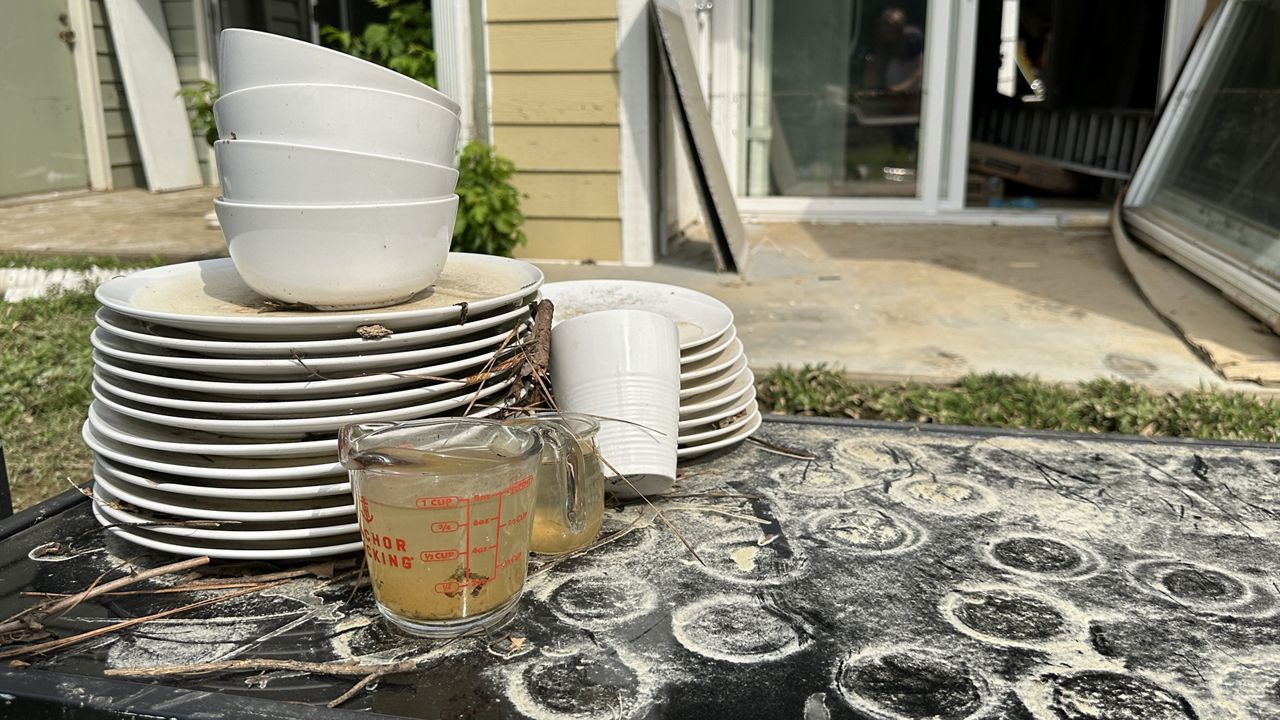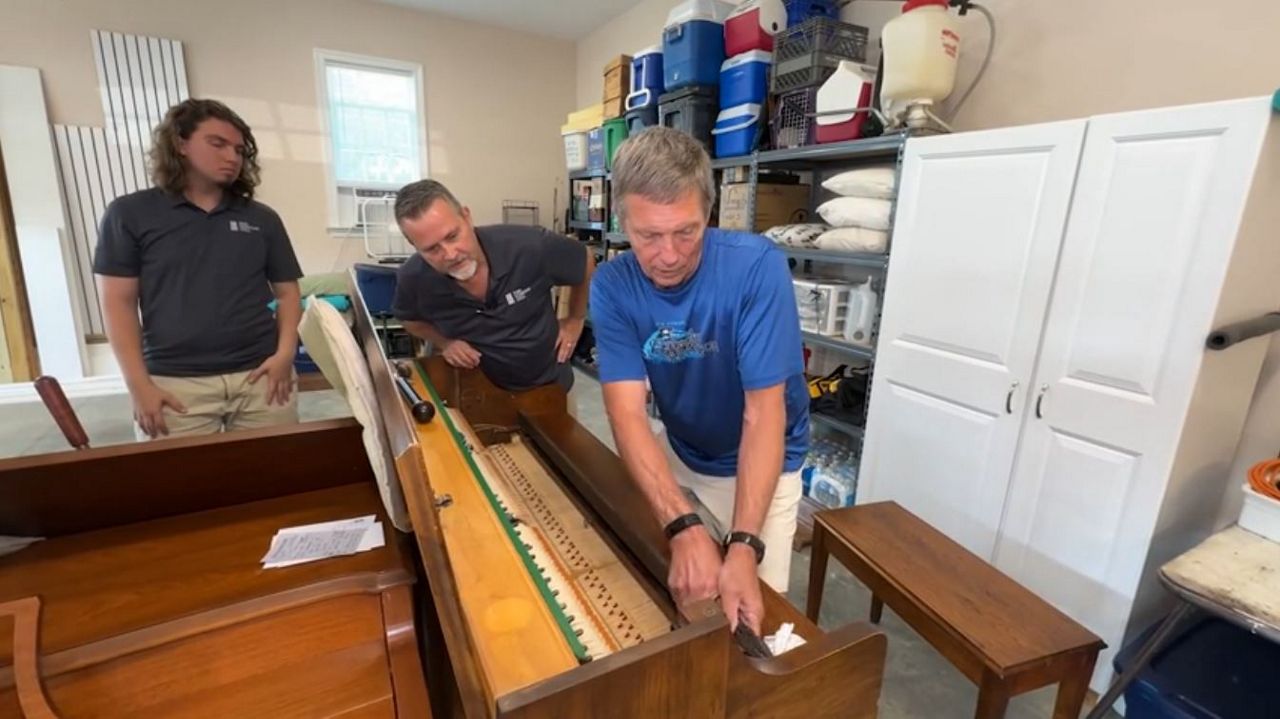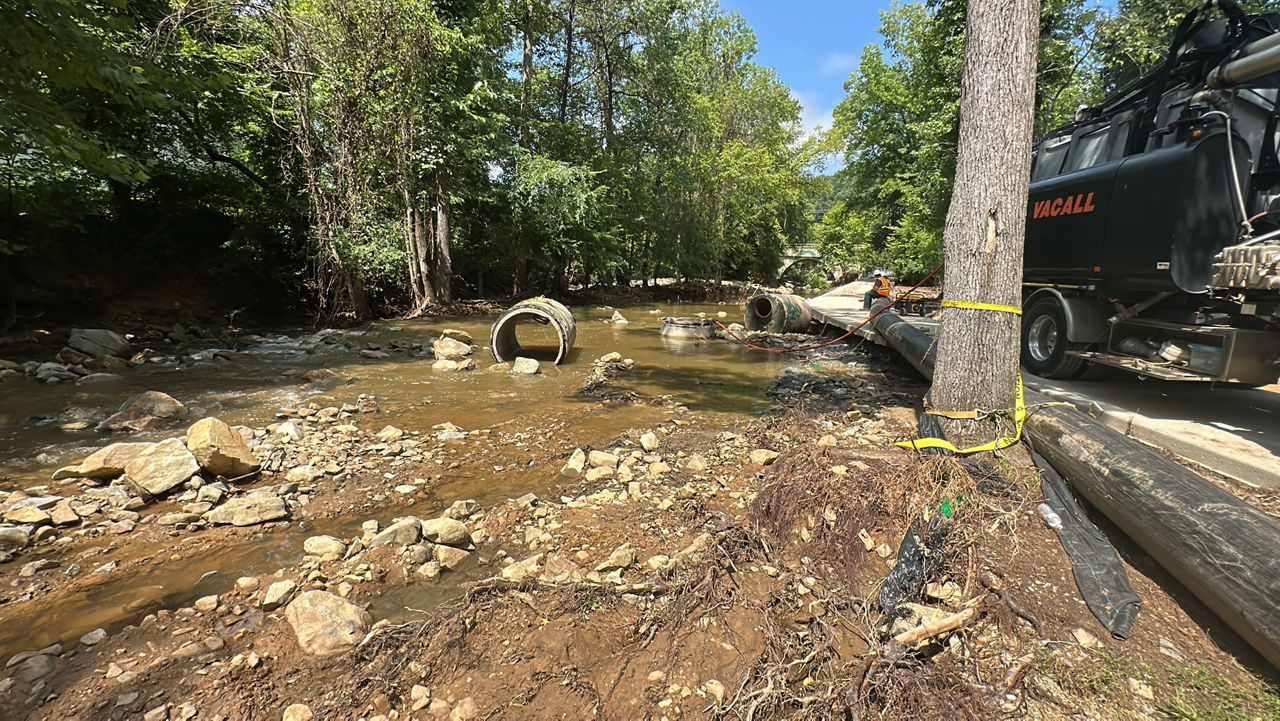JOHNSTON COUNTY, N.C. – As the firearm deer hunting season comes to a close in North Carolina, biologists with the North Carolina Wildlife Resources Commission continue to ramp up testing to track a deadly disease affecting the state’s deer population.
Chronic wasting disease is a fatal neurological disease that affects the brain, spinal cord and many other tissues of farmed and free-ranging deer, elk and moose.
Greg Batts, a biologist with the North Carolina Wildlife Resources Commission, says CWD is caused by misshaped proteins called prions, which lead to a disconnect between the brain and spinal column.
“The deer loses its motor skills, it loses its ability to walk, loses its ability to feed,” Batts explained. “And so, it's called chronic wasting disease because the deer literally wastes away.”
Batts and other biologists test and track CWD cases by removing a harvested deer’s lymph nodes and sending them off to a lab for testing.
“CWD shows up first in the retropharyngeal lymph nodes. That’s what we’re after,” Batts said. “[Scientists] take a thin slice, they put it under a microscope. And then they put a substance in there that reacts with the misshapen prions, and it causes it, if it's present, the prions present, it causes it to change color.”
So far in 2023, there have been five CWD cases reported in three counties. This sampling period will run until June 30, 2024.
2022 was the first year CWD was confirmed in North Carolina, and by the end of the year, it had been reported in seven counties for a total of 15 cases.
According to Batts, there have been no documented cases of humans contracting CWD by eating a deer infected with the disease. However, the Centers for Disease Control and Prevention still recommends people do not eat venison from an infected deer.
CWD can be very difficult to contain, as it is easily transmissible through bodily fluids, according to Batts. He says traces of the misshaped prions can be found in soil and nature for about 15 years.
To limit the spread of the disease, experts recommend hunters do not transport their harvested deer out of county lines. That includes taking a deer to a processor outside of county lines.
Lifelong North Carolina hunter Tommy Jones says seeing the spread of the disease is causing him to be mindful in the way he feeds the deer moving forward.
“The deer will congregate around a feeder or where there's a lot of corn. And so that's where the disease could be easily spread from animal to animal,” Jones said.
Batts says testing for CWD has ramped up drastically over recent years, thanks to approval from the state legislature to provide funding for the tests, which he says can cost approximately $26 per test.
He says it’s an issue they must fight against, as it will affect future deer populations and hunting for future generations to come.
Click here for updated CWD information and to see the testing efforts and results in counties across N.C.
If you see or harvest a deer exhibiting signs of disease, you're urged to leave the animal at the site of kill and call your local district biologist or the N.C. Wildlife Helpline at 1-866-318-2401.








)

